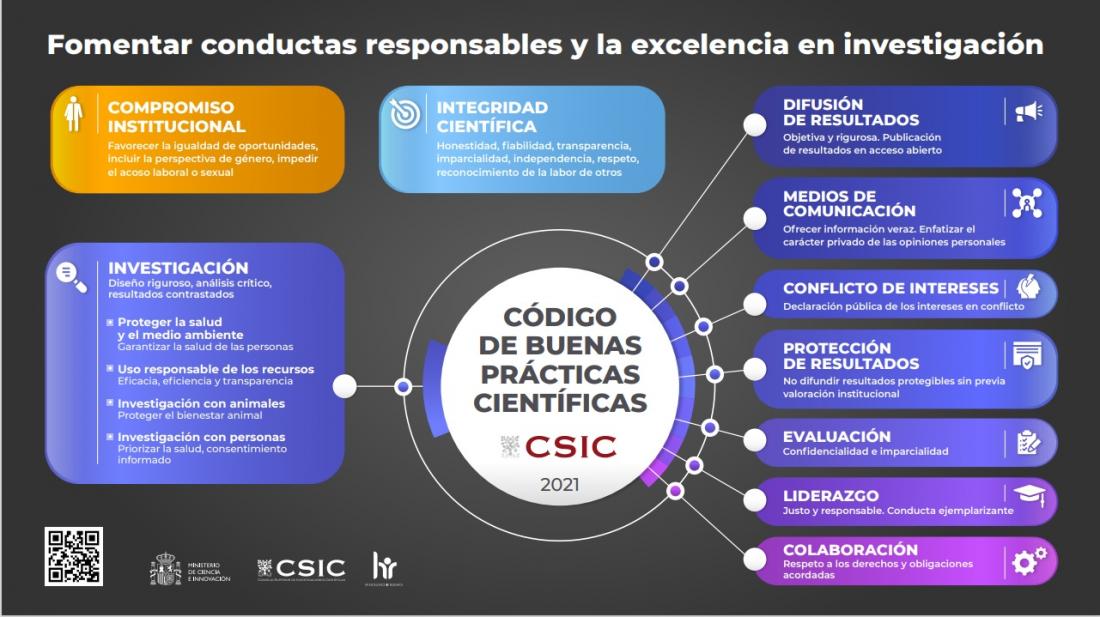The Consejo Superior de Investigaciones Científicas (CSIC), leader of the PPI4MED project, has recently presented its code of good scientific practices

The new code of good practice officially presented a month ago, replaces the previous one that had been in force since 2011. With this update, which regulates aspects such as research with humans and animals, the safety and health of researchers and the protection of the environment, the aim is to achieve excellence in research.
In February, the CSIC received the "HR Excellence in Research" (HRS4R) seal from the European Commission. This logo is recognition of the institution's commitment to developing a Human Resources strategy for researchers, designed to apply the principles of the European Charter for Researchers and the Code of Conduct for the Recruitment of Researchers.
Bringing science and innovation closer to society is essential to enhance its value and interest, both among young people and society in general.
In fact, the code of good practice also includes a chapter on dissemination, at what stage of the research to do so, questions of authorship or aspects to be taken into account when talking to or disseminating with the media.
The PPI4MED project, with the CSIC as the leader, aims to involve the entire innovation ecosystem, from public entities to private companies and technology centres, in order to provide solutions to society so that it also feels part of the advances and development.
Research is fundamental for development. Innovation and a commitment to seeking new ways and solutions are key aspects in a society that is always on the move, with new needs arising at all times.









